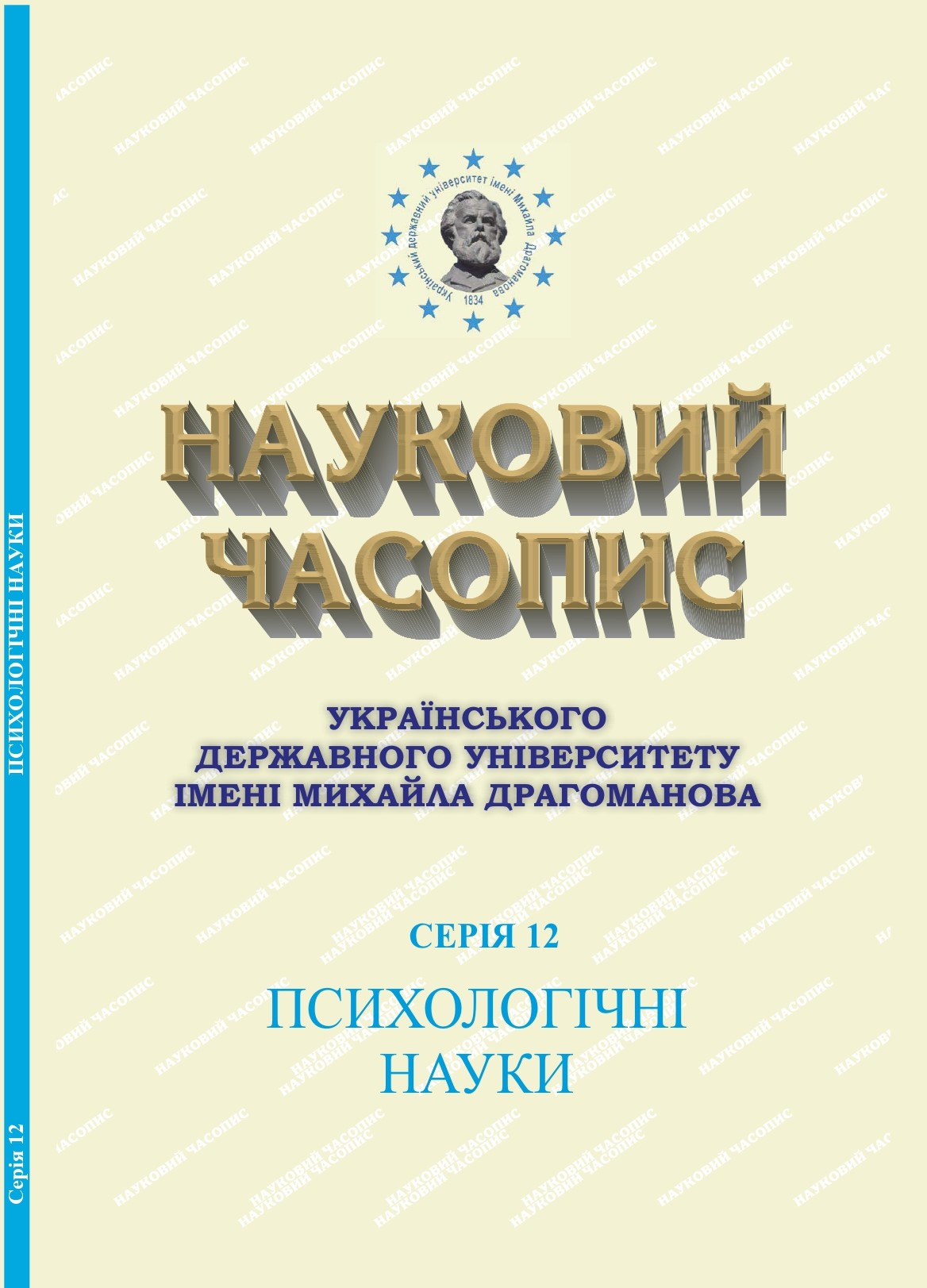PSYCHOLOGICAL WELL-BEING OF UKRAINIAN YOUTH IN CONDITIONS OF UNCERTAINTY
DOI:
https://doi.org/10.31392/UDU-nc.series12.2024.25(70).04Keywords:
psychological well-being, subjective well-being, psychological resourcefulness, resilience, uncertainty tolerance, uncertainty.Abstract
The article is focused on the presentation of theoretical aspects and results of an empirical study on the psychological well-being of young people in conditions of uncertainty. The content analysis of the concept of “conditions of uncertainty” was carried out and it was determined that the dynamic characteristics of human life, characterized by new, more complicated requirements of the surrounding world, the impossibility to predict the expected results of decisions and the consequences of one’s own actions that leads to the destruction of the adaptation barrier and mental maladaptation under the condition, provided that the individual has a low tolerance for uncertainty. The phenomenon of psychological well-being of the individual is analyzed. It is defined that this is a systemic quality of a person that develops and is confirmed in the course of their life activities, manifested in the experience of a meaningful direction and value of life in general as a means of achieving internal, socially oriented goals and is a condition for the realization of potential opportunities and abilities. The main goal of the empirical study described in the article is to determine the factors of psychological well-being of youth in conditions of uncertainty. The objectives of the empirical study in the article are the development and analysis of the empirical research results; identifying the level and factors of psychological well-being of youth in conditions of uncertainty. The empirical study of the factors of psychological well-being of young people in conditions of uncertainty and the conclusion that important factors of psychological and subjective well-being are the level of tolerance to uncertainty, vitality and psychological resourcefulness of young people. The results and conclusions of the empirical research presented in the article can be used for scientific and practical purposes, in psychological work with young people, in the activities of practical psychologists of crisis centers and universities.
References
- Hromova, H.M. (2022). Tolerantnist do nevyznachenosti yak chynnyk transformatsii travmatychnoho dosvidu osobystosti [Tolerance to Uncertainty as a Factor in the Transformation of Personal Traumatic Experience]. Candidate’s thesis. Kyiv [in Ukrainian].
- Karhina, N.V. (2019). Hedonistychne ta evdemonistychne rozuminnia psykholohichnoho blahopoluchchia: perevahy ta nedoliky [Hedonistic and Eudaimonic Understanding of Psychological Well-being: Advantages and Disadvantages]. Teoriia i praktyka suchasnoi psykholohii – Theory and Practice of Modern Psychology, 4(1), 27–33 [in Ukrainian].
- Kovalenko, V.S. (2017). Psykholohichne blahopoluchchia yak skladnyk psykholohichnoho zdorovia liudyny: teoretychni pidkhody ta empirychni doslidzhennia v zakordonnii psykholohii [Psychological Well-being as a Component of Psychological Health: Theoretical Approaches and Empirical Research in Foreign Psychology]. Visnyk Odeskoho natsionalnoho universytetu. Psykholohiia – Bulletin of Odessa National University. Psychology, 3(45), 40–50 [in Ukrainian].
- Khilko, S.O. (2018). Psykholohichni umovy formuvannia tolerantnosti do nevyznachenosti u maibutnikh psykholohiv [Psychological Conditions for the Formation of Tolerance to Uncertainty in Future Psychologists]. Extended abstract of Candidate’s thesis. Kyiv [in Ukrainian].
- Argyle, М. (1987). The psychology of happiness. London; New York : Methuen & Co. LtD.
- Diener, E., & Diener, C. (1996). Most people are happy. Psychological Science, 7, 181–185.
- Diener, E., Oishi, S., & Lucas, R.E. (2003). Personality, Culture, and Subjective Well-Being: Emotional and Cognitive Evaluations of Life. Annual Review of Psychology, 54, 403–425.
- Heintzelman, S.J., & Diener, E. (2018). Subjective well-being, social interpretation, and relationship thriving. Journal of Research in Personality, 78, 93–105. Режим доступу: https://www.researchgate.net/publication/329083016_Subjective_Well-Being_Social_Interpretation_and_Relationship_Thriving
- Lyubomirsky, S., Sheldon, K.M., & Schkade, D. (2005). Pursuing happiness: the architecture of sustainable change. Review of General Psychology, 9(2), 111–131. https://doi.org/10.1037/1089-2680.9.2.11
- Norton, R.W. (2002). Measurement of ambiguity tolerance. Journal of Personality Assessment, 39(6), 607–619.
- McLain, D.L. (2009). Evidence of the Properties of an Ambiguity Tolerance Measure: The Multiple Stimulus Types Ambiguity Tolerance Scale–II (MSTAT–II). Psychological Reports, 105(3), 975–988.
- Ryff, C. (2017). Eudaimonic well-being, inequality, and health: Recent findings and future directions. International Review of Economics, 64, 159–178. https://doi.org/10.1007/s12232-017-0277-4
- Ryff, C.D., & Keyes C.L. (1995). The Structure of Psychological Well-Being Revisited. Journal of Personality and Social Psychology, 69, 719–731.
- Seligman, M. (2011). Doing the Right Thing: Measuring Well Being for Public Policy. International Journal of Wellbeing, 1(1), 79–106. http://dx.doi.org/10.5502/ijw.v1i1.15

